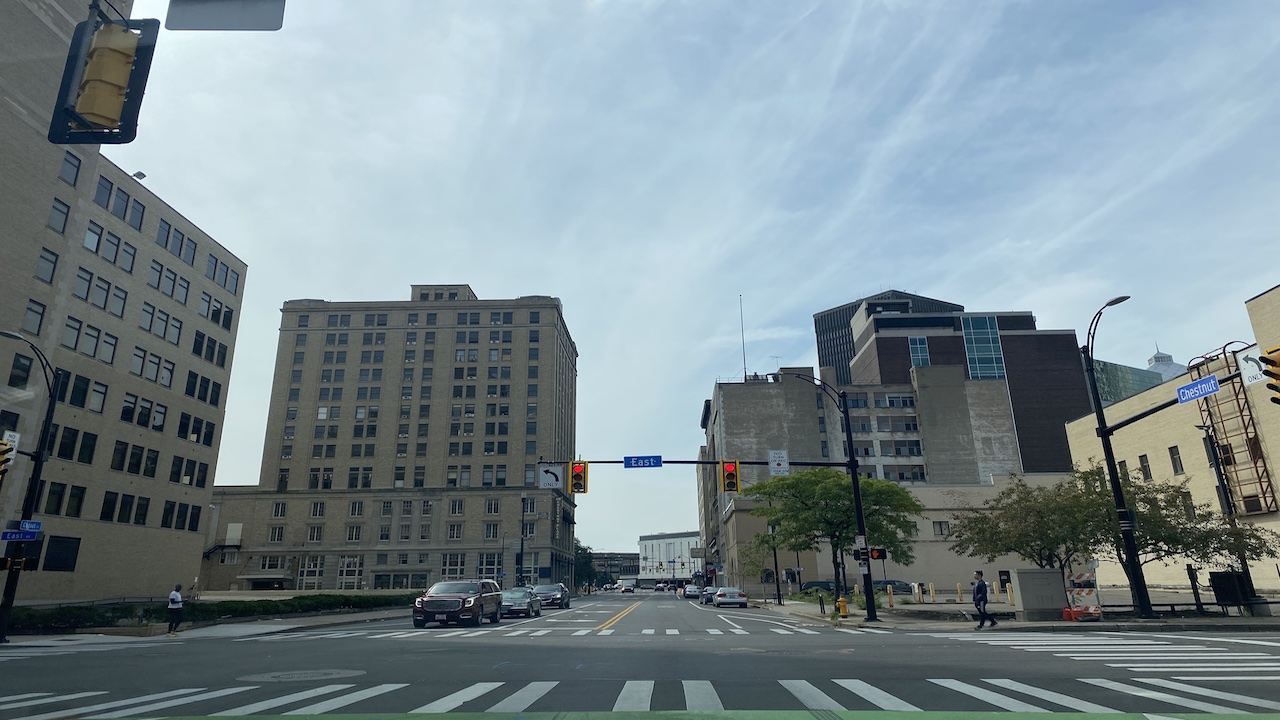Rochester for Energy Democracy
Metro Justice is a grassroots organization striving for economic, social, and political justice in Rochester. Originally created to advocate for equal access to jobs at Kodak in 1965, the organization has grown to encompass a variety of issues within the city. Rochester for Energy Democracy (RED) is a campaign to transfer Rochester’s electricity from RG&E (Rochester Gas and Electric) to a public utility.
The campaign was formed out of residents’ growing dissatisfaction with RG&E’s service and failure to prioritize public needs and sustainability. Metro Justice’s website outlines a few key reasons why RG&E has been falling short of what Rochester residents would consider a utility that serves the public good in a just and sustainable way:
- Making mistakes on people’s bills and failing to resolve issues with ratepayers
- Recurring winter shutoffs
- Maintaining a gas infrastructure that keeps up CO2 emissions
RG&E is an investor-controlled, shareholder-driven company that operates for profit, which restricts the motivation the company has to offer lower rates or ensure all-time service, which costs more: “In 2021 alone, we collectively paid RG&E over $900 million, and RG&E’s shareholders pocketed $108 million in profit”.
Public electricity may seem like a long shot, but big cities such as Seattle and Los Angeles, have publicly owned electricity grids. In fact, Fairport, Spencerport, and Churchville, all surrounding Rochester, have a public utility. 2,000 of the United States’ 3,200 electricity providers are publicly owned, and many other cities are considering the switch.
Metro Justice’s campaign discusses the benefits that would follow switching to a public utility, which include more affordability for residents, an elected Board of Directors to oversee the operation in an accountable fashion, a greener and carbon-free energy transition, as well as a focus on workers’ rights.
In terms of next steps, Metro Justice is pushing for an implementation study that would outline a logistical plan for transitioning to a public utility as well as how much it would cost. Secondly, a referendum would need to take place to show public support for this transition. MetroJustice is collaborating with a variety of partners to continue advocating for this change.
For anyone interested, you can sign this petition or attend one of Metro Justice’s biweekly organizing meetings.
Written by Carmen Marshall, ‘25
Photo by Carmen Marshall

